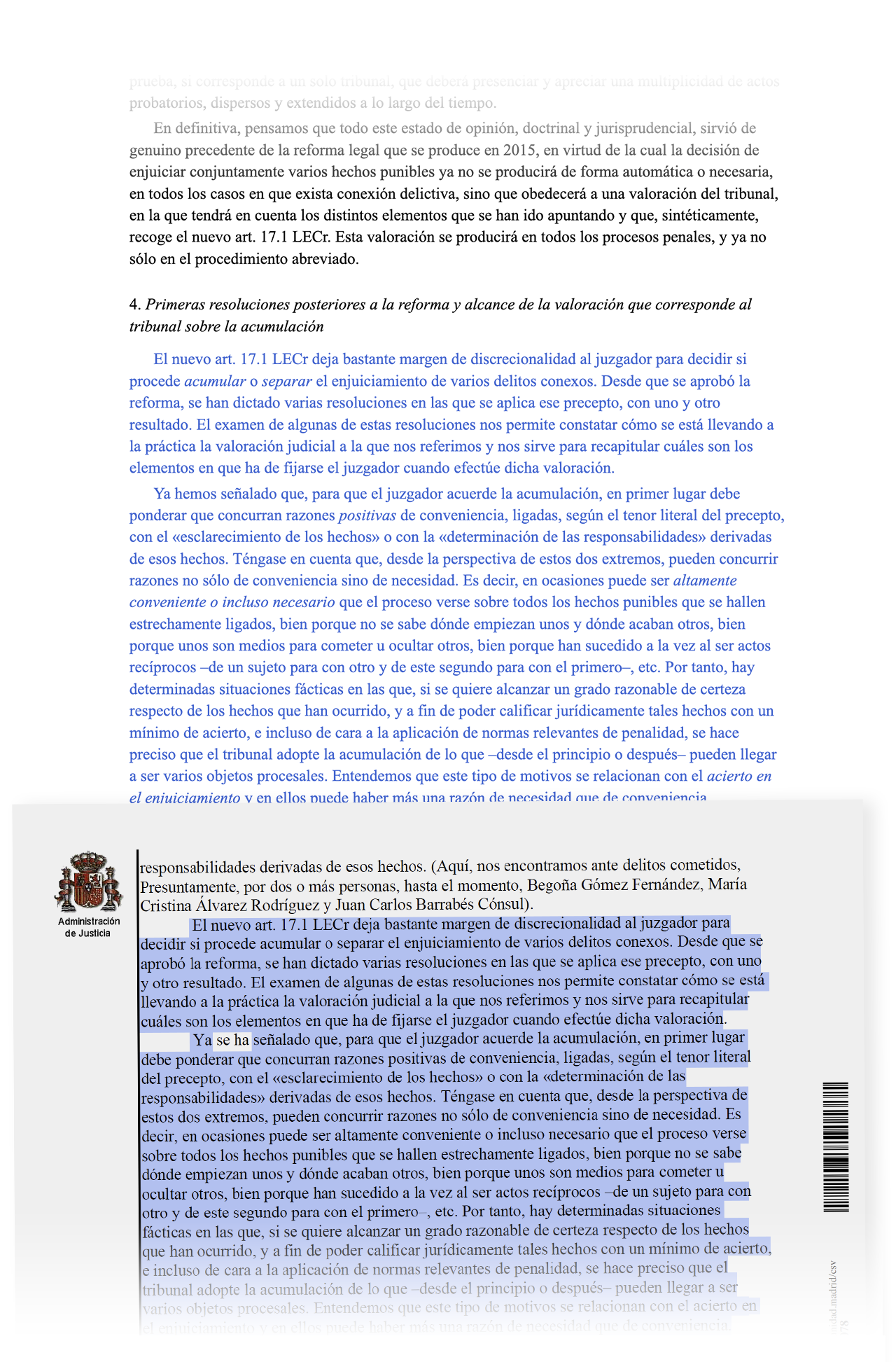Judge Juan Carlos Peinado, who has been investigating Begoña Gómez for a year and a half, has copied entire paragraphs of an article from a legal magazine to base one of his latest resolutions. The magistrate reproduces those fragments without quoting the source and uses them to argue that the same jury court judges the alleged crimes of influence peddling, corruption in business, improper appropriation and professional intrusion that attributes to the wife of the President of the Government in the main piece of the case.
In that resolution, the magistrate directly alludes to Pedro Sánchez and affirms that the “relationship of kinship” between the two “is the cause that is considered fundamental to be able to appreciate the possible concurrence of the crime of influence peddling and, as a consequence of them, the possible remaining crimes.” To support that thesis, he combed a copy and paste from an article entitled “The causes of criminal connection and its application after the reform operated by Law 41/2015”. The author of that article is the procedural law professor Ignacio José Cubillo López and was published in a legal magazine of the University of Deusto in December 2017.
The hairstyle car has nine pages, of which one and a half are a practically literal copy of the aforementioned article. Specifically, much of the Third Law Foundation of the Resolution is a reproduction of the aforementioned academic article, which analyzes in depth the concept of criminal connection in Spanish criminal procedural law, especially after the changes introduced in 2015 in the Criminal Procedure Law.
Hass copying the paragraph in which the new regulation “leaves a lot of margin of discretion to the judge to decide whether to accumulate or separate the prosecution of several related crimes” and that “since the reform was approved, several resolutions have been issued in which this precept is applied, with both result.”

At the top of the image, in Azul, the original text of Cubillo López's article; In the lower part, superimposed, that same text, plagiarized, in the car of the Judge Peinado.
On the basis of this article, Hajinado argues that the joint prosecution of these crimes is essential, since the alleged crime of influence peddling is the “fundamental cause” of the other crimes investigated (corruption in business, improper appropriation and intrusion). According to the judge, a separate prosecution would lead to the “rupture of the continence of the case.” This approach corresponds to the concept of “necessary connection” to which the academic article refers.
In this case, he completes the nuclear matter of the car with the copy and sticks to the article by Professor Cubillo López. The real author cites the reform of the Criminal Procedure Law on which the argument is based to, then transfer a reflection that seems improper in hairstyle: “From that wording, it must be extracted as teleological and hermeneutical interpretation of the same that, includes several assumptions of connection, and this leads us to keep in mind that, sometimes it has sometimes distinguished between material or substantive connection and substantive connection between necessary connection and convexity of convenience or procedural economy ”.
Criticism of lack of motivation
A recurring criticism of the hairstyle instruction is the lack of motivation in the records, that is, the resolutions that must be reasoned by a judge. Sometimes, hairstyle uses the formula of providence, something irregular according to legal sources. In others, he is forced to shape his decisions in the form of a car, but it is a mere formalism because although he has all the sections of this type of resolutions, the section of the foundation is a scarce procedure.
The Provincial Court, which is the upper instance that reviews the decisions of the instructional judges, as is the case of hairstyle, has shaved in several resolutions the lack of motivation of their resolutions. In fact, his judges came to annul for “lack of foundation” the car that agreed to register the housing and offices of businessman Juan Carlos Barrabés while he was in the hospital for a serious illness. The Provincial Court considered that the motivation of the car was insufficient to justify a measure as serious as the restriction of the right to the inviolability of the domicile.
In another car, the Provincial Court also criticized the “extremely reduced, if not practically non -existent” motivation of the car for which she agreed to change the condition of witness to Cristina Álvarez, the advisor of Begoña Gómez.